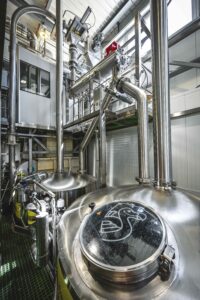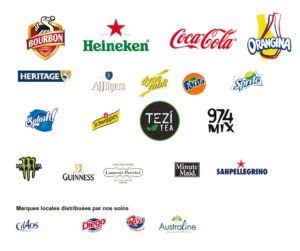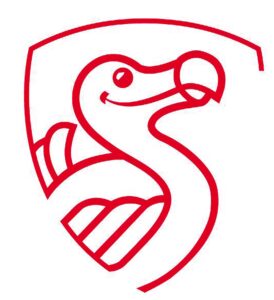
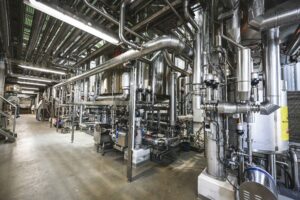
“We are optimistic about the potential of the Reunion market”, you declared on the occasion of the 60th anniversary of Brasseries de Bourbon. What is this conviction based on in an ultimately limited market? ?
As with all consumer products, our products are sensitive to demographic trends. In the meeting, these are always positive : the population continues to increase, and the share of young people remains significant, which means more consumers in the future. We are also seeing an increase in our markets in value. This is proof that the Reunion consumer is ready to pay the right price for a quality product and for the brands that guarantee it.. We are one of these brands. The Reunion consumer knows us well, for a long time now, and he trusts us.
Is your sector of activity impacted by general inflation in production costs?, and how do you react to this situation ?
We are witnessing an unprecedented rise in costs. You have to go back to the 1980s to see this type of increase. We were not able to pass on all of these increases to our selling prices., because this would lead to excessively significant price increases, with an obvious impact on consumption. Short term, we therefore absorb part of these increases in our costs, which severely affects our profitability. The current situation can only reassure us in our efforts to control our production costs and improve our productivity.. She encourages us to continue working in this direction..
What is your opinion on the current state?, on the one hand, the beer market, on the other hand of the soft drinks market ?
Comparison with the previous two years, 2020 et 2021, is difficult as the side effects of Covid-19 have impacted the results. It is therefore difficult at this stage to identify underlying trends. What I can say, it's that, on beer, we see a moderate increase in value for a stable sales volume, increase mainly driven by the premiumization of the market. The beer market has a dynamic driven by a double movement of premiumization and diversification, with more and more beer brands on the Reunion market. On refreshing drinks, the market also continues to grow.
You emphasized that in ten years, Brasseries de Bourbon released more non-alcoholic beers than beers with alcohol. Is “alcohol-free” the future of the beer market? ?
Saying today what the place of “alcohol-free” will be in the future seems impossible to me.. This segment remains very small today : less than 8% of the beer market. What is sure, and we see it, is that more and more people are aware of the need for moderate alcohol consumption, or even zero in certain situations, like during pregnancy for example. As a business, we consider it our duty to respond to this demand by increasing our offering in the “alcohol-free” segment.. We are committed to promoting responsible consumption, and we do it very concretely and directly with our customers : our goal is to be able to offer non-alcoholic beers wherever we offer their alcoholic versions. The development of non-alcoholic beers in our offer comes from there. It is both proof of the ongoing diversification of Brasseries de Bourbon and proof of our commitment to responsible consumption.. For beer lovers, this is an opportunity : they can enjoy it without constraint.
Around ten million euros were invested in two years, including part to build and equip the new brewing room. Brasseries de Bourbon now announces an investment program of 38 million euros over the next three years. What will these new investments focus on? ?
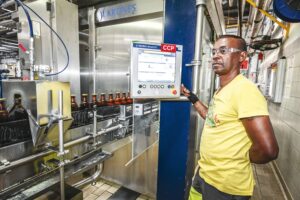
of production : glass bottles, PET, barrels and bibs
The new brewing room that we inaugurated for our 60th anniversary represents an investment of 6,5 million euros. It was financed by the Heineken group, our main shareholder, and with the help of the Réunion Region via the European Regional Development Fund. This new tool offers more ergonomics. It reduces the manual work of operators while increasing their safety on the production site. Thanks to computerization and automation, production processes are better controlled to ensure consistent product quality. On the other hand, storage of our raw materials, malt and rice, is now done in silos for better conservation. New filter improves performance of beer brewing operations. The following investments should make it possible to continue the modernization of our production tools and the digitalization of our processes. They must also support our ambitions in terms of sustainable development and enable us to achieve our objectives of reducing our carbon footprint by 2030. : we are aiming for zero carbon in production.
How do you plan to achieve this ?
You have to activate several levers at once. The lever for energy efficiency — producing with less — involves optimizing processes, chasing losses, investments. The energy mix lever will impose, eventually, that all the energies used, electric and thermal, are of renewable origin, either because the electricity from the Reunion network will be, either because we will have invested in facilities to meet our own needs. The roadmap for this ambition is currently being developed.
Will the calculation to achieve carbon neutrality include the transport of raw materials by boat? ?
As I indicated to you previously, we initially focus on the greenhouse gas emissions of our production, scopes 1 and 2, in the jargon of carbon footprint. The Heineken group has made longer-term commitments on scope 3, transportation, production of raw materials and packaging, etc. The group is working hard with suppliers to move in this direction. On these subjects, cooperation and coordination of efforts between suppliers and producers are crucial to progress.
Thanks to Heineken, since 1986, Brasseries de Bourbon was one of the first local companies to aim for an international quality standard. Are you satisfied with the level of quality achieved today?, and can the company go even further ?
The search for quality is a constant effort. You can never be fully satisfied in this matter.. It requires constant attention and a spirit of continuous improvement. We are all mobilized, at the Bourbon Breweries, for this objective. The new brewery is an example of this. Quality remains a key element of success for any business.
What previously imported products could leave your factory in the future ?
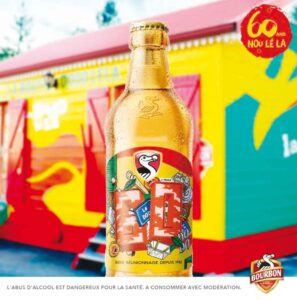
Apart from beer and soda, Brasseries de Bourbon markets major brands in dynamic markets, like water with San Pellegrino or champagne with Laurent Perrier. Is this activity likely to develop? ?
As a reminder, we distribute Australine brands, Cilaos, Réa and Diego and we import the San Pellegrino brands, Minute Maid, Monster et Laurent Perrier. These are brands that usefully complement our portfolio. We serve more than 1,300 customers directly on the island. Being a producer of beers and soft drinks, We regularly add products to our portfolio to increase service to those customers we already serve, their satisfaction being our compass. Any imported product necessarily faces strong competition. The development of this portfolio therefore depends, in fine, of consumer demand for these products.
But I reflect these imports throughout our activity, recalling that Brasseries de Bourbon produces, imports and distributes, in total, 22 brands and more than 200 references, among which you find Bourbon, Heineken, but also Affligem, Dynamalt, Coca Cola, Sprite, Orangina, Schweppes, Tezi Tea… More than 80% of the products distributed by the company are made locally and labeled Nou la fé.
By developing local production, Are you playing the Nou la fé card to better emphasize that the competition's specialty and flavored beers are, they, mostly imported ?
If we are members and defenders of the collective brand Nou la fé, this is because we believe it is important for the Reunion consumer to know which product is made in Reunion. Beyond the pride that a quality, locally made product can generate, it is above all for us the mark of a strong commitment to the territory, the commitment to creating jobs and value locally. In this same logic of participating in the development of the territory, Brasseries de Bourbon favors local purchases as much as possible. In 2021, 44% of the company's purchases were made from local companies between sugar, carton, plastic film, services de communication, advice, etc. We purchased nearly 30 million euros of goods and services from Reunion companies..
Another of your comments made during the 60th anniversary : “We have many innovations in our pipeline to surprise the people of Reunion in the coming months”. Can you reveal some of these “surprises”? ?
To celebrate 60 years of the Dodo brand, we asked our brewers to offer us limited edition beers, gradually placed on the market during the second half of the year. On the five Dodo limited editions, four have already been put on the shelves : Sleep Mixed, a lychee flavored beer, Dodo Citron 0.0, a non-alcoholic beer ; Unique Dodo, a dark beer with caramelized malt, et Dodo Authentic, an unfiltered beer. I'm keeping the surprise for the fifth edition and for the innovations of 2023... otherwise, they will no longer be surprises ! But you can count on us. We're not going to stop there. Other new features will follow.
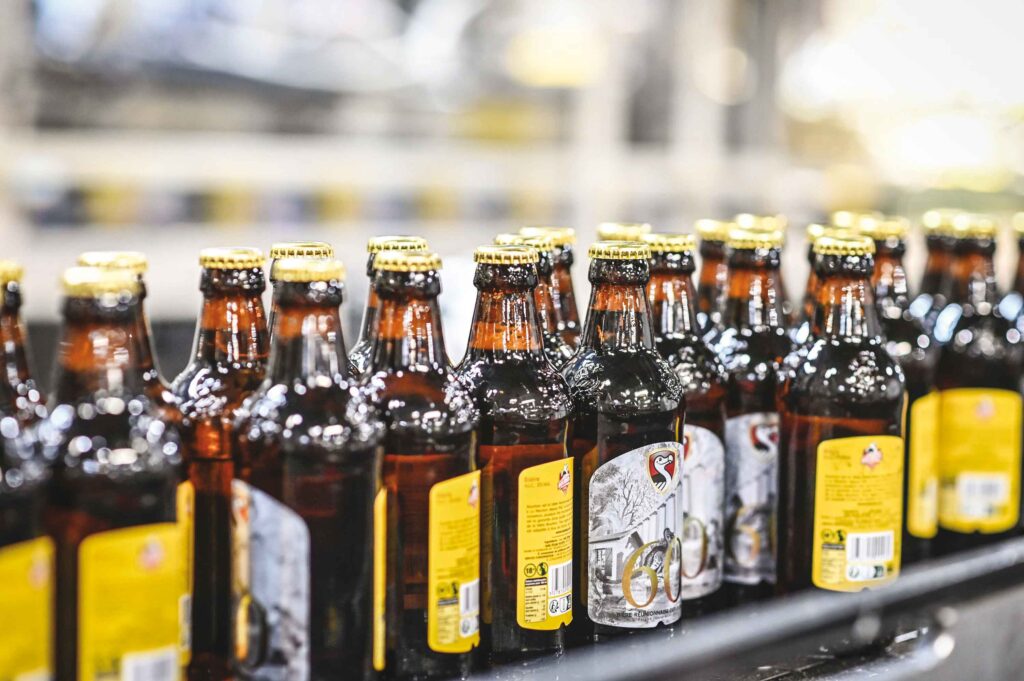
The institutional campaign of Brasseries de Bourbon on the occasion of its 60th anniversary highlights the women and men of the company. We see that a generational change is taking place within your teams. Find all the skills you need locally ?
Bourbon Breweries, there are 230 direct jobs and nearly 2,000 indirect jobs. Despite the reduction in activity in 2020 and 2021, all positions have been retained. It is true that a certain number of employees who have spent their entire career at Brasseries de Bourbon are asserting their right to retirement.. Overall we find the skills locally, and we are committed to training and skills development locally, even if certain professions are in tension. Evidence of this commitment, we regularly welcome young people from Reunion in training, in internship or work-study. We are also a co-founding member of the Innovating for Employment club., a partnership between companies, Deets* and Pôle Emploi Réunion. It’s a laboratory of ideas, a place of social innovation, a space for promoting feedback based on the realities of the needs of the economic world in the service of competitiveness and employment in the territory of Reunion Island. This partnership between companies, Deets and Pôle Emploi Réunion are establishing a unique experimental approach aimed at defining more broadly a model of reciprocal commitments between the economic sphere and the public sphere to meet the challenge of combating unemployment. I would also like to point out that our job offers are systematically distributed to Pôle Emploi., on our website, on LinkedIn and other social networks. They are open to everyone. otherwise, we support the development of skills for employees working with us by investing in training.
You encourage internal mobility ?
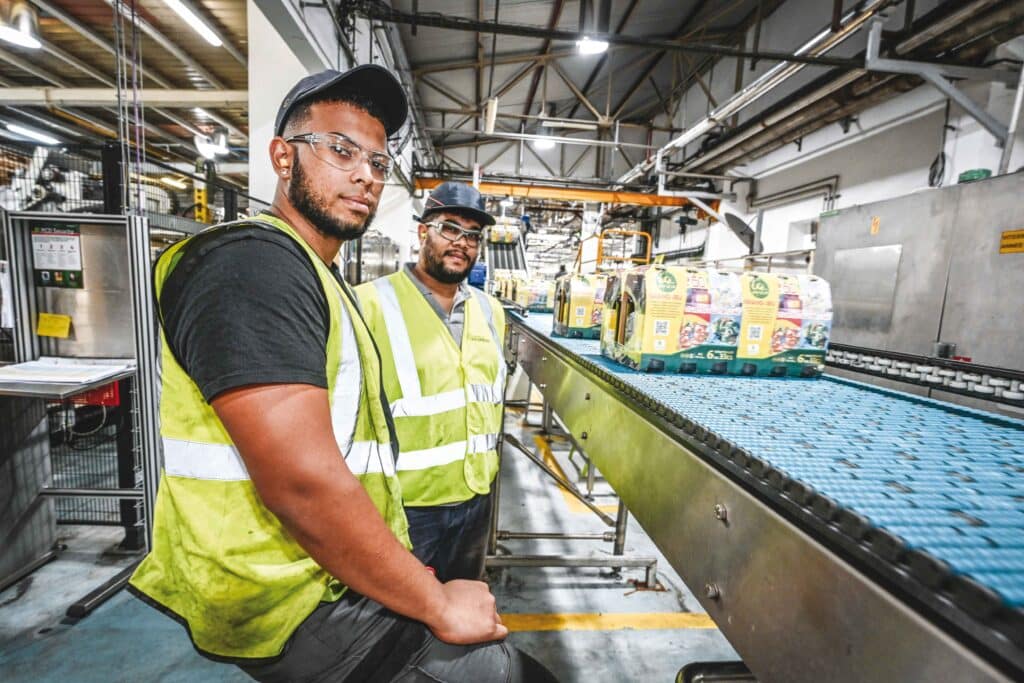
direct and nearly 2,000 indirect jobs
Absolutely. We have already supported employees in their return to studies. I can cite the example of a person who wanted to resume their studies in logistics. We helped her find a work-study position at France Boissons in mainland France, and the person returned to us to take up a position as manager of a department. Belonging to an international group such as Heineken is also a fantastic opportunity in terms of training and development of expertise.. Heineken has training programs and materials for our professions. Employees of Brasseries de Bourbon are required to participate in short missions, usually a few months, in other subsidiaries of the group. They acquire expertise and are considerably enriched by seeing how things are done elsewhere, which is very useful to us when these employees return to their positions. Currently, an employee of Brasseries de Bourbon carries out a five-month mission for a subsidiary in Africa, while we welcome a collaborator from Heineken France for a twelve-month mission. otherwise, we have implemented a forward-looking employment and skills management program (GPEC). The aim is to identify skills needs over the next three years and to train the employees concerned.. It also creates employment opportunities. Between January 2021 and October 2022, more than half of the open positions were filled through internal mobility. On the remaining positions, two thirds were entrusted to people present in Reunion.
*Deets : direction of the economy, employment, work and solidarity




